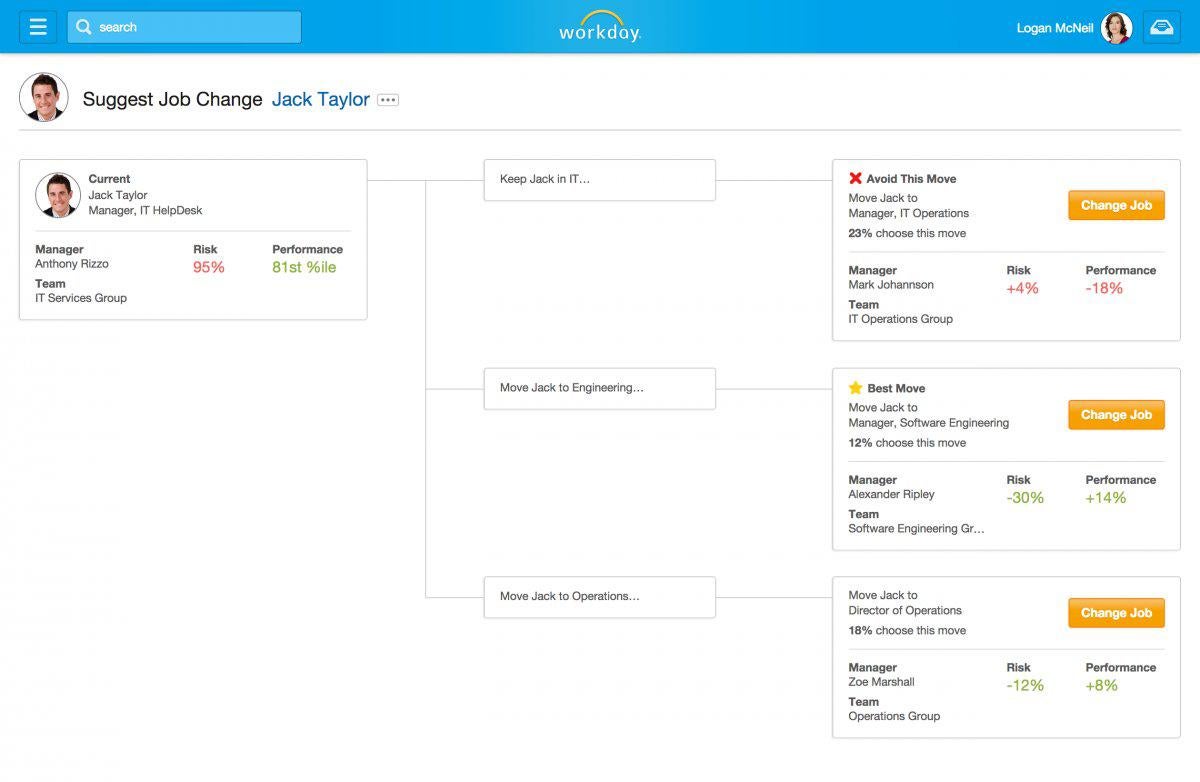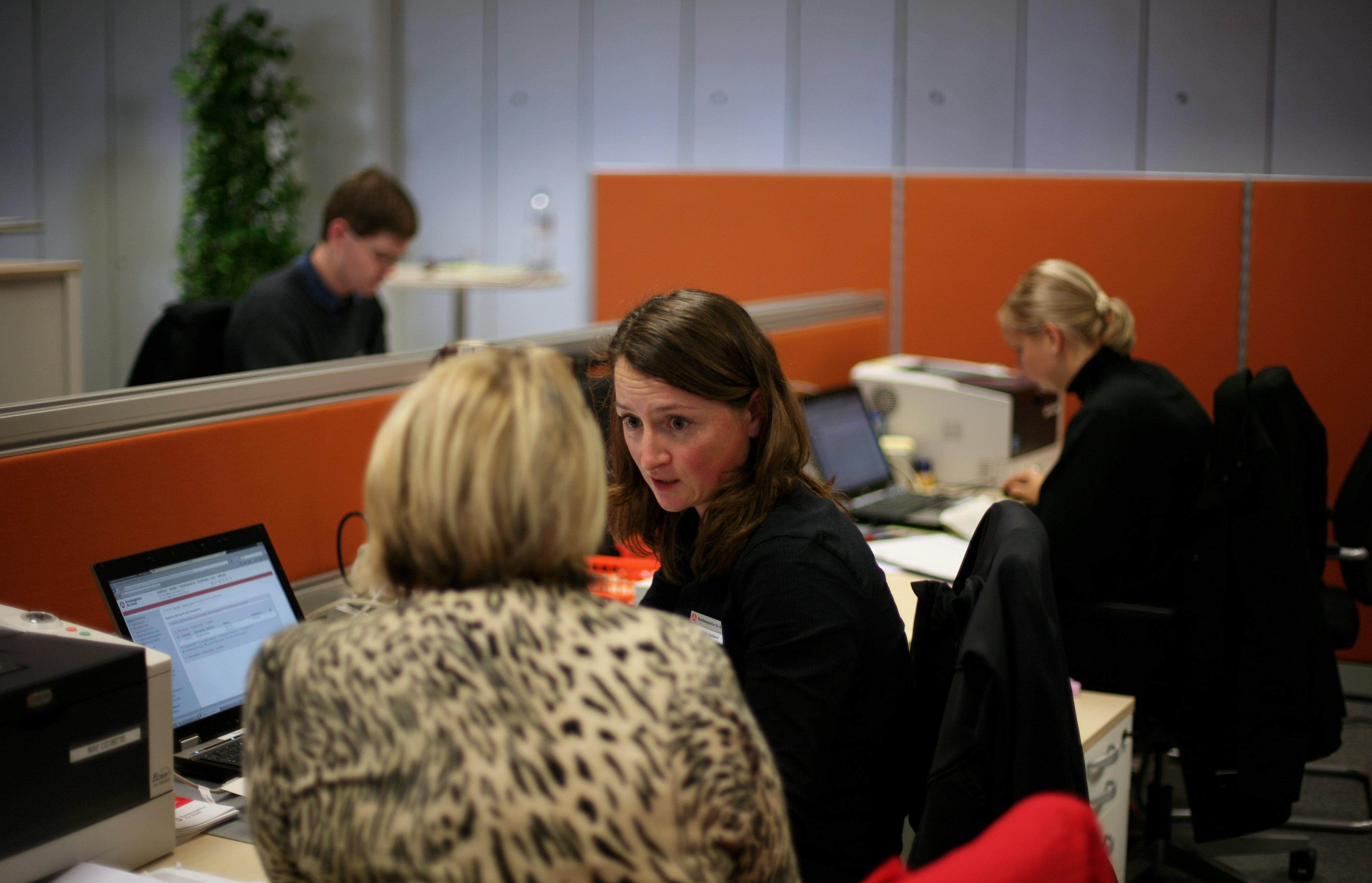This article originally appeared in Business Insider.
Workday is an HR technology company that wants to tell your employer that you’re planning to leave your job—ideally before you’ve even started looking for your next gig.
While this might sound like a sort of terrifying Big Brother scenario, it has less to do with mind control than it does with statistics. Workday’s new software, which it hopes to release next year, works by looking at your career progression and comparing it with other employees who have followed a similar path. So if other people in your position have left the company after an average of two years on the job, Workday could send your bosses a note letting them know you might be getting ready to split.
The idea is to be able to give its clients recommendations, like “give Jane a promotion,” that would allow them to keep their most talented employees. “This is not skynet, we’re not trying to kill all humans here,” Workday VP of technology products Dan Beck tells Business Insider. “This is just sort of augmenting your judgment.”
Workday is a nine-year-old company that makes software to help large companies manage payroll, map out their organizational hierarchy, and chart employees’ sales performance. But for it’s next round of products, it plans to go beyond merely organizing information by using a recommendation engine similar to the ones employed by consumer-focused companies like Pandora or Facebook.
Last year, it hired Mohammad Sabah, who previously worked on Netflix’s movie recommendation algorithm, to be its head of data science.
Workday’s method of determining when an employee is about to split brings in data from several sources. First, the company scours a database of 300 million internet job postings to figure out which skills are most in-demand right now. In addition to looking at an employee’s job description, the algorithm takes into account factors like how long they have been at the company and when they last received a promotion.
Since Workday’s clients are all large companies that have thousands of employees, any one person can be compared with many similar workers who have come before them.
In testing its product with one large client, Workday was surprised to find that the biggest determinant of whether a high-performing employee would leave the company was the different kinds of work each employee was responsible for— even more than pay or the time that had elapsed since their most recent promotion. Based on this information, it can say, for instance, that moving an IT manager to a job in software engineering could make them 30 percent less likely to leave. If nothing else, Beck says, the warning bells could help managers know when it’s time to talk to an employee about their next move.
Workday gave us this mockup to show what the software will look like:

Workday
In the future, Workday hopes to use data to predict which employees will be most productive in the coming years, and to empower employees by giving them an opportunity to see the data themselves. “The reason we’re excited about recommendations is because we see that as the real gold standard,” Beck says. “It happens all the time in our consumer lives, and that’s what we’re bringing to enterprise software.”
See Also: How Google Tricks Its Employees Into Eating Healthy
